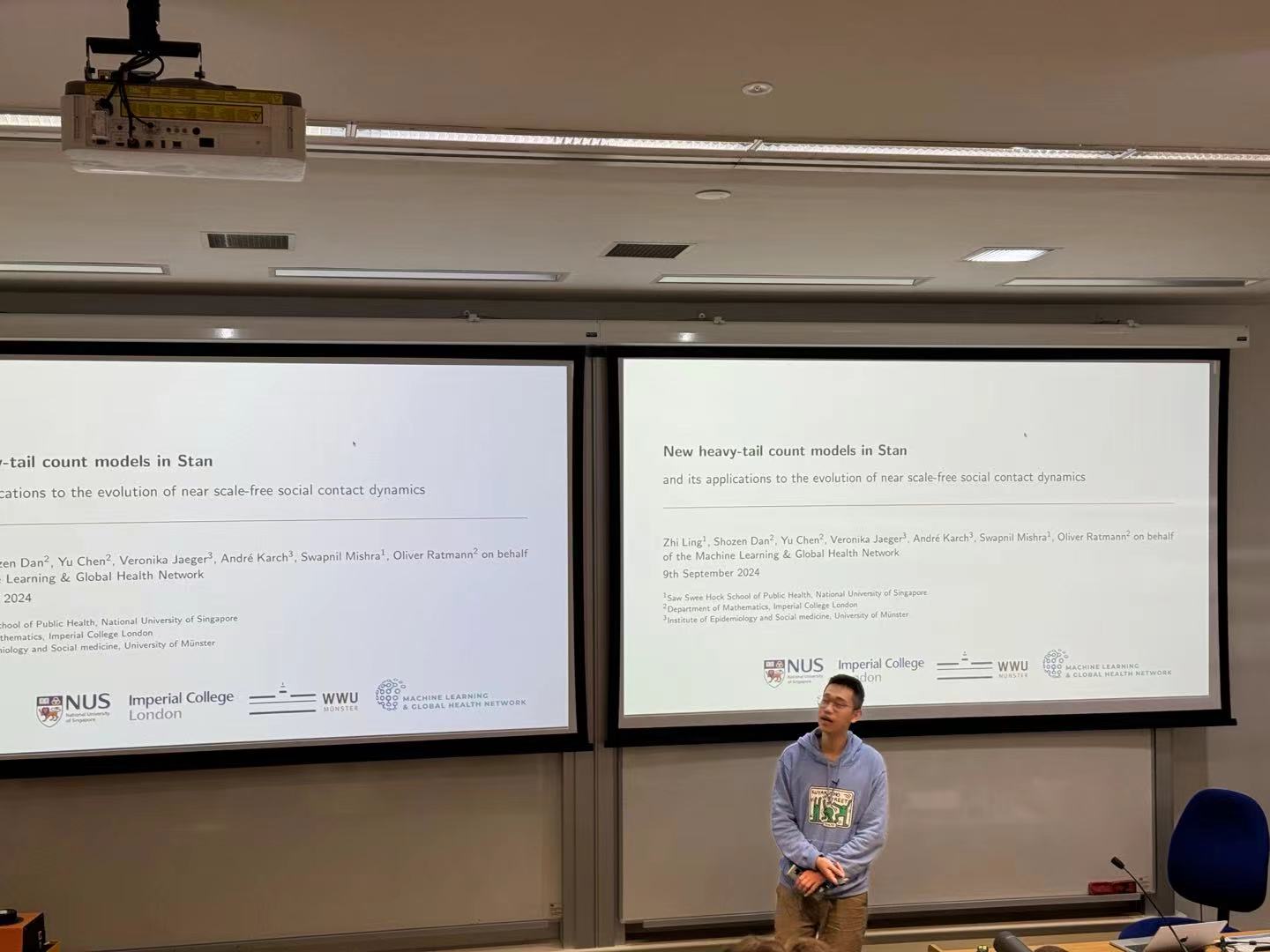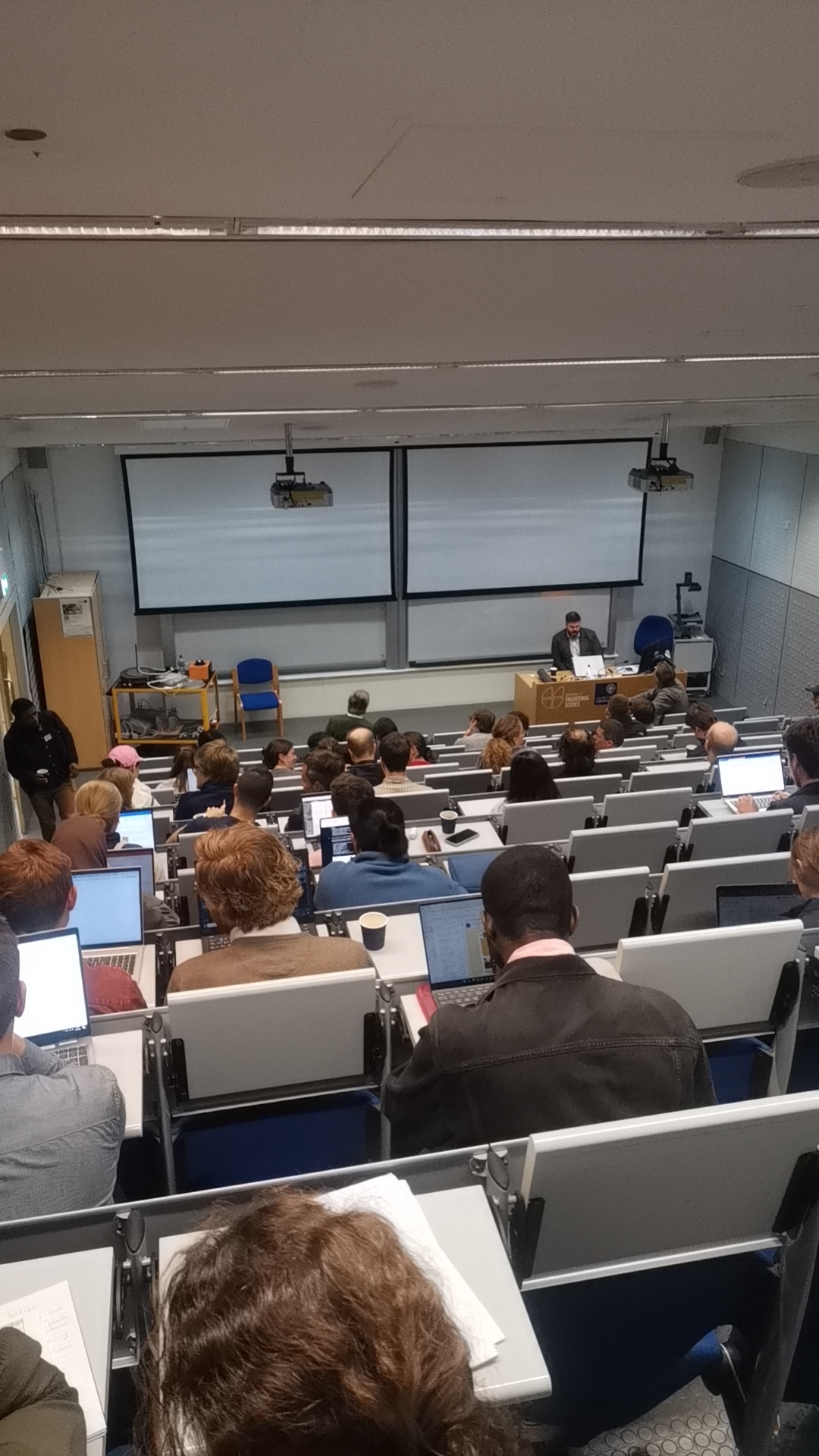Reflections from StanCon24
Zhi's visit to StanCon24 at Oxford
by Zhi
StanCon 2024 (full name: Conference on Stan Programming and Bayesian Modeling) was held at the University of Oxford from September 9 to 13, 2024. This conference mainly aims to foster a community and provide a gathering space for Stan developers, Bayesian experts, and researchers interested in Stan and Bayesian inference. I was honored to receive a scholarship for this StanCon, which covered five days of accommodation in Oxford and the conference ticket. I also sincerely thank my PI, Dr. Swapnil Mishra, for supporting me to present my recent work at the conference.
My presentation focused on two main areas. First, I discussed our work on modeling human contact patterns during the COVID-19 pandemic in Germany. This study revealed a very small yet long-overlooked aspect of human contact distribution: extreme events are more likely to occur than what past models have suggested, and this higher probability has profound implications for the spread of diseases through contact networks. The second topic was my development work on Stan. We have been contributing to the Stan Math Library (a math library supporting reverse-mode automatic differentiation, written in modern C++). Specifically, we are working on adding heavy-tailed count distributions, which have been requested within the Stan community for over a decade
After my talk, I received positive feedback from both academic and industrial attendees. One participant working in sports modeling told me that many variables in their dataset were count variables that did not follow Poisson or Negative Binomial distributions. Instead, these variables were more dispersed than expected, yet unfortunately, current tools like Stan and many other statistical modeling software only offer limited options. The audience showed the most enthusiasm for GPU-related topics—highlighting how much they hope to one day escape the computational burden of MCMC.
At the conference, I also had the chance to talk with Bob Carpenter, the creator of the Stan language. He said to me, “If you’re using CUDA, you can’t call yourself an inexperienced C++ developer.” But I wasn’t being modest—I truly don’t know much about C++ and CUDA. I only learned the most basic syntax necessary to complete my project. I also had a conversation with Brian Ward, the main developer and maintainer of the Stan compiler stanc3. Through this, I gained a deeper understanding of Stan’s internal numeric types.
After returning from this conference, I became even more convinced of the importance of Bayesian statistics and the development of infrastructure for probabilistic programming languages. As Elizaveta Semenova mentioned, she no longer uses Stan
TIP
Watch all the talk recordings at YouTube
Pictures!



- People loved my UNIQLO Hoodie. I think this might be more appealing than my talk…
- The meeting was held in a lecture hall in the Thom Building (department of engineering science, university of oxford)
- A Harry Potter-like dinner, organized by StanCon